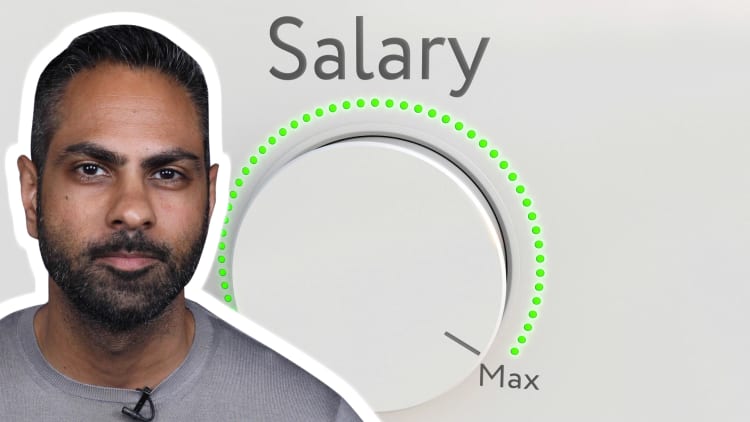A majority of women, 60%, say they've never negotiated with an employer over pay. But that may be leading to women changing jobs more frequently, since 72% say they'll leave an employer to get a salary bump somewhere else.
That's according to a new report from staffing firm Randstad US, which surveyed over 1,200 employed U.S. adults. Women, as it turns out, are much more likely than men to make a lateral move to improve their salary. And just over half of women are already considering leaving their jobs because they feel underpaid.
Source: Randstad 2020 U.S. compensation insights survey
"As opportunity abounds for talented people and as social recruiting and the war for talent is in full force right now, women and men are being presented lots of opportunities that they can choose to pursue or not right now," Kathy Robinson, a career coach and founder of Boston-based Turning Point, tells CNBC Make It.
And with the current solid job market, finding a new job may seem easier than attempting to negotiate for higher pay. It can be "tempting" to find somewhere new, Robinson says, especially for women who feel they're not being rewarded for what they're contributing to their current employer.
If you're not getting the raise you want, Robinson recommends talking with your employer first. Ask your manager or HR rep whether a plan can be put in place to get to whatever salary increase you'd like to see in the next six months to a year. "That doesn't necessarily mean money will fall out of the sky," Robinson cautions, adding that many times it's a question of what responsibilities you can take on or what recalculation may be possible.
Having that kind of honest, two-way conversation with your current employer is something that would probably take less effort than going through a job search, she says.
That said, the onus should not just be on women, Robinson says, adding that the fact that 72% of women have their eye on the door in order to get a pay raise should be a "huge wake-up call" for companies.
"That's a huge blind spot for employers if they're not aware that this is happening and they think their female employees are totally fine with whatever it is they're being paid."
But either path you take, asking for a raise internally or seeking a new job, Robinson says: "You have to sell yourself — you have to negotiate."
On the surface, it may seem that it is easier to look elsewhere and have a fresh start, but in reality, women who are looking for new jobs with higher pay are going to spend multiple hours adjusting their resume, polishing their cover letter, going on multiple rounds of interviews and undergoing salary negotiations.
"That takes a lot of courage and negotiating strategy — whether it's about pay or not, it's still negotiating your way into a new role," Robinson says. "Women are using the same skills externally that they would need internally."

If companies are interested in retaining women long-term, Robinson says they need to create an environment that encourages regular and clear conversations with women and men about what the expectations are for earning a raise, as well as the career paths available to employees.
At the same time, both men and women need to think about what they're delivering that has tangible value to the company over and above their job description. "It needs to come from both sides," Robinson says.
Don't miss: 49% of workers got a pay raise in 2019—here's how to get one in 2020
Like this story? Subscribe to CNBC Make It on YouTube!



